By – James M. Katz, BA
In today’s fast-paced world, stress has become an unwelcome companion for many. What is stress management? It’s the set of techniques and strategies people use to cope with life’s pressures and maintain their mental and physical well-being, lastly it is meant to reduce stress! From work deadlines to personal relationships, the sources of stress are numerous, and learning how to manage stress effectively is crucial for a balanced and healthy life. Stress is a part of everyone’s life, but how we handle it makes all the difference. Stress Management Coaching is a powerful tool that helps people manage stress effectively, leading to a healthier and more balanced life. Whether it’s work pressure, family responsibilities, or personal challenges, a stress management coach can provide the strategies and support needed to navigate these issues successfully.
This article explores various stress management techniques to help individuals reduce stress and improve their overall quality of life. It delves into understanding the stress response, recognizing stress symptoms, and the importance of stress management. Readers will discover cognitive techniques for stress reduction, physical activities to combat stress, and the role of nutrition in stress management. Additionally, the article covers the benefits of social support, time management strategies, and prioritization skills to effectively manage stress in daily life.
Key Takeaways
- Stress Management Coaching helps individuals handle stress better and improve their overall well-being.
- Anyone feeling overwhelmed, tired, or irritable can benefit from stress management coaching.
- Techniques such as mindfulness, time management, and lifestyle changes are core to stress management coaching.
- A stress management coach provides personalized plans and ongoing support to help clients manage stress.
- Measuring progress and adjusting strategies are essential parts of effective stress management coaching.
Understanding the Stress Response
The stress response is a natural, automatic process within the body that gets triggered by situational stressors or changes. All humans experience stress because it’s an evolutionary tool that keeps us alert, out of danger, and surviving. When someone feels threatened, whether it’s due to an impending deadline or a physical attack, their nervous system releases a flood of stress hormones, primarily cortisol and adrenaline.
Fight-or-flight mechanism
The release of stress hormones triggers what’s commonly referred to as the fight-or-flight response. This response prepares the body to either confront the impending danger or flee from it. During this process, several physiological changes occur:
1. Heart rate increases
2. Blood pressure rises
3. Muscles tighten
4. Senses become sharper
The hypothalamus, a tiny region at the brain’s base, initiates this alarm system in the body . Through nerve and hormonal signals, it prompts the adrenal glands to release hormones. Adrenaline increases heart rate, raises blood pressure, and provides more energy. Cortisol, the primary stress hormone, increases blood sugar levels, enhances the brain’s use of glucose, and increases the availability of substances that repair tissues.
This carefully orchestrated sequence of hormonal changes and physiological responses helps someone to fight off the threat or flee to safety. The body’s stress response system is usually self-limiting. Once a perceived threat has passed, hormone levels return to normal, and heart rate and blood pressure go back to typical levels.
Acute vs. chronic stress
Stress can be categorized into two main types: acute and chronic.
Acute stress is experienced on a daily basis from minor situations. It comes in bursts, typically happens quickly, and fades once the situation has passed. Most people experience this type of stress, and their bodies usually recover well afterward. Some common symptoms of acute stress include:
• Anxiety
• Irritability
• Mood swings
• Lack of focus
• Insomnia
• Recurrent nightmares
• Anger
• Nail biting
While these symptoms may occasionally cause health issues, they usually subside when the stressful situation is resolved.
Chronic stress, on the other hand, is a consistent sense of feeling pressured and overwhelmed over a long period. It can be caused by various factors, including poverty, a dysfunctional marriage or family, or a deeply dissatisfying job. Chronic stress slowly drains a person’s psychological resources and can damage their brain and body.
The long-term activation of the stress response system and prolonged exposure to cortisol and other stress hormones can disrupt almost all the body’s processes.
This can lead to various health issues, including:
• Increased risk of getting sick due to a weakened immune system
• Sleep problems
• Headaches from constant muscle tension
• Increased risk of anxiety and depression
• Problems with learning and memory
• Higher risk for heart disease, obesity, and diabetes
Understanding the stress response and its mechanisms can help individuals recognize the signs of stress and take appropriate steps to manage it effectively. By learning to identify the differences between acute and chronic stress, people can better address their stress-related issues and work towards maintaining their overall well-being.
Recognizing Stress Symptoms
Stress can manifest in various ways, affecting an individual’s physical health, emotional well-being, and behavior. Recognizing these symptoms is crucial for effective stress management. The signs of stress can be categorized into physical, emotional, and behavioral indicators.
Physical Signs
The body’s response to stress can result in numerous physical symptoms. These may include:
1. Cardiovascular changes: Increased heart rate, chest pain, or high blood pressure
2. Muscular tension: Shoulder, neck, or back pain; general body aches
3. Digestive issues: Upset stomach, diarrhea, constipation, or indigestion
4. Sleep disturbances: Difficulty falling asleep or staying asleep
5. Fatigue and exhaustion
6. Headaches and dizziness
7. Changes in appetite and weight
8. Weakened immune system
Additionally, individuals may experience shortness of breath, grinding teeth, clenching jaw, or changes in their menstrual cycle.
Emotional Indicators
Stress can significantly impact a person’s emotional state. Common emotional symptoms include:
1. Increased anxiety or irritability
2. Feeling overwhelmed or on edge
3. Depression or persistent sadness
4. Mood swings and emotional instability
5. Difficulty concentrating or remembering things
6. Feelings of dread or panic attacks
7. Decreased motivation and interest in activities
It’s important to note that stress can affect everyone differently, and two people in the same stressful situation may have vastly different emotional reactions.
Behavioral Changes
Stress often leads to changes in behavior as individuals attempt to cope with the pressure they’re experiencing. Some common behavioral symptoms include:
1. Social withdrawal
2. Changes in eating habits, such as overeating or developing an eating disorder
3. Increased use of alcohol, tobacco, or other substances
4. Nervous habits like nail biting, skin picking, or hair pulling
5. Procrastination or neglecting responsibilities
6. Sleep changes, including excessive sleeping or insomnia
7. Increased argumentativeness or aggression
8. Compulsive behaviors such as excessive shopping or gambling
It’s worth noting that nearly half of all adults report that stress negatively impacts their behavior in some way.
Recognizing these symptoms is the first step in addressing stress effectively. However, it’s important to understand that stress responses can vary greatly among individuals due to factors such as genetics, past experiences, personality traits, and cultural background. If someone notices persistent or severe stress symptoms, it may be beneficial to seek professional help to develop appropriate coping strategies and maintain overall well-being.
Who Can Benefit from Stress Management Coaching
Identifying Stress Symptoms
Stress can affect anyone, showing up in different ways. Some people might feel tired all the time, while others might get angry easily. Recognizing these signs is the first step to managing stress. If you often feel overwhelmed or find it hard to focus, you might be experiencing stress symptoms.
Target Audience for Coaching
Stress management coaching is for anyone who feels the weight of stress in their daily life. Whether you’re a student, a busy parent, or a professional, learning how to handle stress can make a big difference. People who feel like they’re always playing catch-up or can’t find a balance between work and home can benefit a lot from coaching.
Common Stress Triggers
Many things can cause stress, like work pressure, family responsibilities, or even financial worries. Understanding what triggers your stress is key to managing it. By working with a coach, you can learn to identify these triggers and develop strategies to handle them better.
The Importance of Stress Management
Stress management plays a crucial role in maintaining overall well-being and improving various aspects of life. By learning to manage stress effectively, individuals can experience significant benefits in their health, productivity, and relationships.
Health Benefits
Effective stress management techniques can lead to numerous health improvements. Research has shown that reducing stress levels can have a positive impact on both physical and mental health. For instance, managing stress better can lead to improved heart health, mental well-being, and sleep quality.
One of the most significant health benefits of stress management is its potential to reduce blood pressure and enhance overall physical health. This is particularly important as chronic stress has been linked to increased heart rate and disrupted circadian rhythms, which can elevate the risk of heart disease.
Mental health is another area that benefits greatly from stress management. Studies have found a strong connection between stress levels and mental health conditions such as depression and anxiety. A 2020 study examining 11,954 college students revealed that uncertainty stress, defined as anxiety in facing ambiguous situations and problematic environments, was associated with high levels of mental health conditions.
Additionally, stress management can improve sleep quality. Recent research from 2022 has shown that stress can make falling and staying asleep difficult and may also reduce sleep duration. By managing stress effectively, individuals can break this cycle and enjoy better sleep patterns.
Improved Productivity
Stress management has a significant impact on productivity in various settings, including the workplace and academic environments. When stress levels are high, it can be challenging to focus on tasks and maintain productivity.
Studies have shown that over 50 percent of employees are disengaged at work as a result of stress. This disengagement can manifest in several ways that directly affect productivity:
1. Lack of energy: Stress rapidly drains physical and mental energy, making it difficult to perform at one’s best.
2. Lack of focus: High stress levels make it extremely difficult to concentrate on tasks at hand.
3. Constant worry: Stress can cause individuals to spend valuable time worrying about potential outcomes rather than focusing on productive tasks.
4. Reduced creativity: Stress limits the ability to generate innovative ideas and think creatively.
Furthermore, stress can lead to increased absenteeism, with about 1 million Americans taking off each day across the country due to work stress. This not only affects individual productivity but also impacts overall company performance.
Better Relationships
Effective stress management is crucial for maintaining healthy relationships, both personal and professional. When stress levels are high, it can negatively impact how individuals interact with others and maintain their connections. Stress can create a negative cycle in relationships where partners “catch” each other’s stress, leading to escalated arguments and misunderstandings. This contagious nature of stress can make it difficult for couples to address underlying issues and maintain a harmonious relationship. However, by viewing stress as an opportunity to share and open up with one another, relationships can become stronger. Partners who learn to navigate stress together and build resources to deal with future stress often find their relationships improving. They learn what they need from each other and show one another that they are cared for, valued, and understood.
In the workplace, stress can affect peer relationships and communication. Stressed individuals may isolate themselves or lack the energy required for polite conversations and small talk. This can ultimately impact the company’s productivity and overall work environment. By implementing effective stress management techniques, individuals can improve their ability to communicate, set boundaries, and maintain a healthy work-life balance. These skills are essential for fostering positive relationships both at home and in the workplace.
Cognitive Techniques for Stress Reduction
Cognitive techniques play a crucial role in managing stress effectively. These methods focus on changing thought patterns and perceptions to reduce stress and improve overall well-being. Three key cognitive techniques for stress reduction are positive self-talk, cognitive restructuring, and mindfulness practices.
Positive Self-Talk
Positive self-talk is an internal dialog that involves encouraging and uplifting thoughts. It’s a powerful tool for managing stress and improving one’s outlook on life. Self-talk is influenced by the subconscious mind and reveals thoughts, beliefs, questions, and ideas. When individuals practice positive self-talk, they can enhance their performance and general well-being.
To develop positive self-talk, one can:
1. Identify negative self-talk traps
2. Check in with feelings regularly
3. Find humor in situations
4. Surround oneself with positive people
5. Use positive affirmations
Research suggests that positive thinking and optimism can be effective stress management tools. A 2010 study showed that optimists have a better quality of life. By practicing positive self-talk, individuals can potentially experience improved well-being and a better quality of life.
Cognitive Restructuring
Cognitive restructuring is a technique that helps people change the way they think about stressful situations. It involves identifying and challenging stress-producing thoughts, also known as cognitive distortions, and replacing them with more balanced and realistic thoughts.
The process of cognitive restructuring typically includes:
1. Identifying situations that lead to stress
2. Examining thoughts and feelings arising from those situations
3. Determining what is true and untrue about those thoughts
4. Developing alternative, more balanced thoughts
5. Assessing how the new thoughts affect emotions and stress levels
Cognitive restructuring is a core component of cognitive-behavioral therapy (CBT), a well-studied therapeutic approach. In CBT, individuals work with a therapist to identify faulty thought patterns and practice techniques to reshape negative thinking. This method can help lower stress levels, relieve anxiety, strengthen communication skills, and rebuild self-confidence.
Mindfulness Practices
Mindfulness is a type of meditation that focuses on being intensely aware of present-moment sensations and feelings without judgment. It involves various techniques such as breathing methods and guided imagery to relax the body and mind, ultimately reducing stress. Research published in the Journal of Research in Personality shows that present-moment awareness, a key feature of mindfulness, increases stress resilience and effective coping.
Mindfulness practices offer several benefits:
1. Increased awareness of thoughts, allowing for a more objective perspective
2. Improved ability to pause before reacting to situations
3. Enhanced sensitivity to bodily needs
4. Greater emotional intelligence and reduced conflict
5. Increased care and compassion for oneself and others
6. Reduced activity in the amygdala, the brain’s stress response center
Studies from dedicated centers at the University of Massachusetts Medical School and the University of Oxford suggest that mindfulness builds inner strength, reducing the impact of future stressors on happiness and physical well-being https://www.mindful.org/how-to-manage-stress-with-mindfulness-and-meditation/.
By incorporating these cognitive techniques into daily life, individuals can develop more effective ways of managing stress, leading to improved mental health and overall quality of life. It’s important to note that while these techniques can be practiced independently, working with a mental health professional can provide additional guidance and support in developing these skills.
Physical Activities to Combat Stress
Aerobic Exercises
Aerobic exercises are powerful tools for combating stress and improving overall well-being. Regular physical activity can boost the production of endorphins, the brain’s feel-good neurotransmitters, leading to a sense of euphoria often referred to as a “runner’s high”. This natural mood enhancer can help individuals feel more positive and energized.
Research suggests that as little as 20 to 30 minutes of cardio can help reduce stress levels. Engaging in activities such as brisk walking, jogging, swimming, or cycling can have a direct impact on the brain by improving oxygen utilization and blood flow. These physiological changes contribute to better stress management and overall health.
Aerobic exercises also offer a unique opportunity for meditation in motion. During activities like a fast-paced game of racquetball or a long run, individuals often find themselves forgetting daily irritations and focusing solely on their body’s movements. This shift in focus can lead to increased clarity and calmness that extends beyond the exercise session.
Yoga and Tai Chi
Yoga and tai chi are ancient practices that combine physical movement with mindfulness, making them excellent choices for stress reduction. Both activities emphasize proper posture, controlled movements, and deep breathing, which can help release tension in the body and calm the mind.
Tai chi, often described as “meditation in motion,” involves slow, flowing movements and deep breaths. Regular practice of tai chi has been shown to reduce symptoms of anxiety and depression, improve sleep quality, and enhance overall mood. The gentle nature of tai chi makes it accessible to people of all fitness levels, including older adults and those with chronic conditions.
Similarly, yoga offers numerous benefits for stress management. Even without formal meditation, the gentle muscle stretching in yoga can help reduce stress. Yoga practices that incorporate controlled breathing and meditation techniques can be particularly effective in promoting relaxation and mental clarity.
Outdoor Activities
Engaging in physical activities outdoors can provide additional stress-relieving benefits. Spending time in nature has been shown to help relieve stress and anxiety, improve mood, and boost feelings of happiness and well-being. The natural environment presents scenes that gently capture attention, calming nerves instead of frazzling them.
Outdoor exercises, such as hiking or trail running, can be particularly effective in reducing anxiety and improving mental health. Research indicates that a 90-minute walk in nature can lower activity in the part of the brain linked to negative thoughts . Additionally, outdoor activities can stimulate creativity and problem-solving skills, with one study showing a 50% improvement after spending four days in nature.
Participating in group outdoor activities, such as joining a walking or hiking group, can provide additional benefits by reducing isolation and increasing accountability. This social aspect of outdoor exercise can further enhance its stress-reducing effects and contribute to a sense of belonging and connection to the wider world.
By incorporating a combination of aerobic exercises, mindful practices like yoga and tai chi, and outdoor activities into their routine, individuals can effectively combat stress while improving their physical and mental health. The key is to choose activities that are enjoyable and sustainable, as consistency is crucial for reaping the long-term benefits of exercise in stress management.
Measuring Success in Stress Management Coaching
Tracking Progress
Just like a gardener checks their plants for growth, we need to monitor our clients’ progress. Start by creating a simple, easy-to-follow system to track their stress levels and the effectiveness of the tools they’re using. For example, ask your clients to rate their stress levels on a scale of 1-10 before and after trying a new technique. Or, have them keep a journal to jot down their thoughts and feelings as they go through the process. Regular check-ins also provide valuable insights into their progress. Remember, it’s not about aiming for a stress-free life (impossible, right?). It’s about helping clients build resilience and find the right tools to manage stress effectively. Celebrate their small wins and remind them that the journey is what matters. Every step forward deserves a high-five or a happy dance.
Evaluating Stress Reduction
Assessing clients’ progress is crucial to understanding if our stress-busting strategies are working. By using these tools, we can help clients see the patterns in their lives that might be causing stress. Once we know what’s causing the stress, we can work together to come up with a plan to tackle it head-on. Encourage open, honest communication, and let your clients know that it’s okay to change course. Flexibility is the key to success in stress management coaching. By staying open to feedback and adjusting your strategies, you’ll be able to provide the most effective support for each unique individual, helping them cook up the perfect recipe for stress management success!
Adjusting Strategies as Needed
Not every tool or technique will work perfectly for every client. That’s why it’s essential to listen, adapt, and tailor your coaching strategies based on their feedback. Like a master chef tweaking a recipe, be ready to adjust your coaching approach. Perhaps one client needs more focus on mindfulness techniques, while another might benefit from setting better boundaries at work. By staying open to feedback and adjusting your strategies, you’ll be able to provide the most effective support for each unique individual, helping them cook up the perfect recipe for stress management success!
Nutrition and Stress Management
Foods that Fight Stress
Proper nutrition plays a crucial role in managing stress effectively. Certain foods contain nutrients that can help reduce stress levels and improve overall well-being. Fatty fish, such as salmon, tuna, and sardines, are rich in omega-3 fats, L-tryptophan, and vitamin D, which are essential for mood regulation and stress response. Legumes like beans and lentils have been linked to lower levels of perceived stress, with a study showing that people with higher intakes of legumes were 26% less likely to have high levels of perceived stress.
Berries are packed with antioxidants and anti-inflammatory compounds that contribute to cognitive function and mood regulation. A 2022 study found that participants with the highest fruit intake had 16%, 25%, and 27% lower odds for lack of joy, worries, and tension, https://www.uakron.edu/armyrotc/MS1/14.pdf respectively. Leafy greens and cruciferous vegetables, such as Swiss chard, spinach, and broccoli, are high in stress-reducing nutrients like vitamin C, carotenoids, and magnesium.
Other stress-fighting foods include:
1. Matcha: Rich in L-theanine, an amino acid with stress-relieving properties
2. Sweet potatoes: May help lower levels of the stress hormone cortisol
3. Kimchi: Packed with probiotics that may help reduce stress and anxiety
4. Artichokes: High in prebiotics, which may help reduce stress levels
5. Organ meats: Excellent source of B vitamins essential for stress control
Hydration
Proper hydration is crucial for managing stress effectively. Dehydration can actually cause symptoms that feel like anxiety, such as dizziness, muscle fatigue, headache, and increased heart rate. Studies have shown that being just half a liter dehydrated can increase cortisol levels, one of the primary stress hormones.
To ensure adequate hydration:
1. Drink between half an ounce to an ounce of water for every pound you weigh, daily
2. Carry an insulated sports bottle and fill it up periodically
3. Keep a glass of water on your desk at work and next to your bed
4. Drink small amounts of water throughout the day
For children, it’s recommended to drink at least six to eight cups of water every day, with more needed during physical activities.
Limiting Caffeine and Alcohol
While many people turn to caffeine and alcohol to cope with stress, it’s important to consume these substances in moderation. Caffeine is a central nervous system stimulant, and consuming too much may increase feelings of stress and anxiety. It can overstimulate areas of the brain that process threats and make it harder for the brain to regulate anxiety.
Alcohol, classified as a depressant, slows down the brain and changes the way people think, feel, and act. While it may provide temporary relief from stress, it doesn’t address the source of stress and is considered an unhealthy coping mechanism. Drinking too much alcohol can negatively impact stress-related brain pathways and the hypothalamic pituitary adrenal (HPA) axis, which is the body’s main stress response system.
To manage stress effectively, it’s recommended to practice moderation with alcohol consumption. Women should have no more than one drink per day, and men should have no more than two drinks. Some experts suggest that there is no safe amount of alcohol, as the risk of certain cancers may increase with less than one drink per day.
By focusing on a balanced diet rich in stress-fighting foods, staying properly hydrated, and limiting caffeine and alcohol intake, individuals can better manage their stress levels and improve their overall well-being.
Social Support and Stress Relief
Social support plays a crucial role in managing stress and maintaining overall well-being. Research has shown that individuals with robust social support networks experience better health, longer lives, and higher levels of well-being. Strong relationships with friends and family members can bolster mood, improve outlook, and preserve mental well-being. People with high levels of social support tend to be more resilient in the face of stressful situations and have a lower perception of stress in general.
Building a Support Network
To reap the benefits of social support, it’s essential to build and maintain relationships actively. This involves putting in effort even when not personally feeling stressed out. Here are some strategies to build a strong support network:
1. Schedule time with friends and reach out regularly, even during busy periods.
2. Show appreciation for the support received from others.
3. Be available when needed and reciprocate invitations.
4. Accept help from others, as it keeps relationships balanced.
5. Support others’ successes genuinely.
6. Volunteer for causes that align with personal values.
7. Join professional organizations or sports clubs to expand social circles.
Research indicates that the quality of relationships (functional dimension) is a better predictor of good health than the quantity of relationships (structural dimension), although both are important.
Effective Communication
Open, honest communication is vital for maintaining healthy relationships and managing stress effectively. Good communication skills can reduce misunderstandings, enhance relationships, and create a supportive environment that promotes stress reduction and resilience. Here are some key aspects of effective communication:
1. Practice active listening by giving full attention and providing verbal and non-verbal cues of engagement.
2. Use assertive communication to express needs and feelings respectfully.
3. Develop empathy to understand and validate others’ emotions.
4. Listen for feelings rather than just facts when someone is sharing their concerns.
5. Ask open-ended questions to encourage further discussion.
6. Communicate understanding by paraphrasing or rephrasing what the other person has said.
It’s important to note that men and women may communicate differently when offering support. Men may be more likely to offer practical assistance or advice, while women may prefer to discuss feelings. Recognizing these differences can help improve communication and support within relationships.
Setting Boundaries
Setting healthy boundaries is crucial for managing stress and maintaining satisfying relationships. Boundaries clarify where one’s responsibilities and authority end, and another people begin. While setting boundaries can initially be stressful, the end result is often worth it, leading to relationships with greater mutual respect and less stress for everyone involved.
To set effective boundaries:
1. Identify personal comfort levels and limits in various situations.
2. Communicate these boundaries clearly to others.
3. Be prepared for some negotiation, as others may have different boundaries.
4. Consider the practical factors and potential “costs” of setting boundaries.
5. Recognize that saying “no” is a valid and necessary part of maintaining healthy boundaries.
By incorporating these strategies for building a support network, communicating effectively, and setting boundaries, individuals can harness the power of social support to better manage stress and improve their overall well-being.
Time Management and Prioritization
Effective time management and prioritization are crucial skills for reducing stress and increasing productivity. These techniques help individuals focus on important tasks, avoid procrastination, and achieve their goals more efficiently.
Goal Setting
Setting clear and achievable goals is a fundamental aspect of time management. Goals provide direction and motivation, helping individuals stay focused on what matters most. According to research, only 30% of managers believe they are good at delegating, https://www.uakron.edu/armyrotc/MS1/14.pdf which highlights the importance of developing this skill.
When setting goals, it’s essential to:
1. Create realistic and specific objectives
2. Break larger tasks into smaller, manageable steps
3. Set deadlines for each goal
4. Prioritize tasks based on importance and urgency
By setting small, incremental goals, individuals can focus on the next step rather than becoming overwhelmed by larger objectives. Visualizing oneself reaching these goals can also be beneficial, as it helps identify potential obstacles and create plans to overcome them.
Delegation
Delegation is a critical skill for managers and team leaders to master. It involves assigning responsibility to another person for a task while maintaining ultimate accountability. Effective delegation not only helps manage workload but also develops new competencies and skills in staff members.
When delegating tasks, consider the following factors:
1. Employee capability and motivation
2. Task importance and associated risks
3. Bench strength and skill development opportunities
4. Availability of both the delegator and the delegate
To delegate effectively, managers should have a clear conversation with the employee, explaining the task’s big picture, expectations, and available resources.
Avoiding Procrastination
Procrastination can have serious effects on productivity and well-being.
To combat procrastination:
1. Acknowledge avoidance behaviors
2. Divide tasks into smaller, manageable chunks
3. Set specific deadlines for each task
4. Create a structured schedule
5. Eliminate distractions in the work environment
Using techniques like the Pomodoro method, which involves working in focused intervals followed by short breaks, can help maintain productivity and avoid burnout. Additionally, holding oneself accountable for completing assignments on time is crucial for developing good time management habits. By implementing these strategies for goal setting, delegation, and avoiding procrastination, individuals can significantly improve their time management skills and reduce stress levels. Remember that developing these skills takes practice and patience, but the long-term benefits are well worth the effort.
How to Become a Stress Management Coach
Necessary Skills and Knowledge
To become a stress management coach, you need to learn how to help people handle and lower their stress. You don’t need a college degree to start, but taking a good certification course can be very helpful. These courses teach you about stress, how it affects people, and ways to manage it. You’ll also learn how to talk to clients and help them set and reach their goals.
Certification Programs
There are many programs that can certify you as a stress management coach. Some of the best ones include the Spencer Institute, Precision Nutrition, and Udemy. These programs cover different aspects of stress management, like sleep, recovery, and even a Christian approach. Picking the right program depends on what you want to focus on and how much time and money you can invest.
Career Opportunities
Once you’re certified, you can work in many places. You might have one-on-one sessions with clients, lead group workshops, or even work in corporate wellness programs. Some coaches also offer their services online. The goal is to help people live happier, healthier lives by managing their stress better.
Common Outcomes of Stress Management Coaching
Improved Emotional Health
Stress management coaching can lead to better emotional health. By learning how to handle stress, people often feel happier and more at peace. They become more aware of their feelings and know how to manage them better. This can help reduce feelings of anxiety and sadness.
Enhanced Physical Well-being
When stress is managed well, it can also improve physical health. People might sleep better, have more energy, and even lower their risk of getting sick. Good stress management can lead to a healthier body overall.
Better Coping Skills
One of the key outcomes of stress management coaching is learning how to cope with stress in a healthy way. People learn new skills and techniques to handle tough situations. This means they can face challenges without feeling overwhelmed. These skills can make life feel more manageable and less stressful.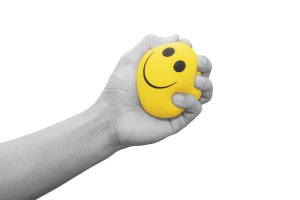
Conclusion
Stress management has a significant impact on overall well-being and quality of life. The techniques discussed in this article provide a comprehensive approach to tackle stress effectively. From cognitive methods like positive self-talk and mindfulness to physical activities such as aerobic exercises and yoga, individuals have a variety of tools at their disposal to manage stress. Additionally, proper nutrition, social support, and effective time management play crucial roles in reducing stress levels and improving resilience.
By putting these strategies into action, people can develop a personalized stress management plan that suits their lifestyle and needs. Remember that managing stress is an ongoing process that requires patience and consistency. With practice and dedication, individuals can enhance their ability to cope with life’s challenges, leading to improved mental and physical health, better relationships, and increased productivity in both personal and professional spheres.
If you are interested in becoming a stress management coach, then please review our online Certification Program in Stress Management Consulting. The program consists of 8 online stress management courses. They all require the student to pass 1 final, open book and untimed exam. Once complete you would simply submit the application, you would be a certified stress management consultant for a period of 4 years! For full information on our Stress Management program, please go here.
FAQs
- What is stress management?
Stress management involves strategies and techniques aimed at reducing the negative effects of stress to enhance an individual’s physical and mental health. This can include personal care practices, adjusting responses to stress, and altering lifestyle choices in stressful situations.
Who can benefit from Stress Management Coaching?
Anyone feeling overwhelmed, constantly tired, or struggling to balance work and personal life can benefit. It’s also helpful for those who want to learn better coping strategies for stress. - What techniques are used in Stress Management Coaching?
Coaches use various techniques like mindfulness, relaxation exercises, time management strategies, and lifestyle adjustments. These methods help individuals manage stress more effectively. - Can you list five effective stress management techniques?
Certainly! Here are five practical methods to manage stress:
1. Engage in guided meditation.
2. Practice deep breathing techniques.
3. Maintain regular physical exercise and a nutritious diet.
4. Limit the amount of time spent on social media.
5. Make efforts to connect with friends and family. - What actions can be taken to lessen stress?
To mitigate stress, consider the following actions:
• Adopt a healthy diet to prevent diet-related illnesses.
• Monitor and moderate smoking and alcohol consumption.
• Incorporate exercise into your routine.
• Allocate time for relaxation.
• Practice mindfulness.
• Ensure you get adequate, restful sleep.
• Avoid being overly critical of yourself. - What is an example of a healthy stress management technique?
Healthy stress management techniques include mindfulness meditation, deep breathing exercises, cognitive-behavioral therapy (CBT), regular physical activity, yoga, relaxation methods, and participating in support groups. These practices are beneficial for managing stress related to both mental health and substance use disorders. - How does a Stress Management Coach help clients?
A coach conducts an initial assessment to understand the client’s stressors, sets goals, and creates a personalized plan. They provide ongoing support and accountability to ensure progress in managing stress. - What are common outcomes of Stress Management Coaching?
Common outcomes include improved emotional health, better physical well-being, and enhanced coping skills. Clients often feel more in control and less overwhelmed by stress. - How can I become a Stress Management Coach?
To become a coach, you need to acquire knowledge and skills in stress management. Enrolling in certification programs can be beneficial. Career opportunities are available in various settings, including one-on-one coaching and corporate wellness programs.
Research Articles:
Magnitude and Factors Affecting Parental Stress and Effective Stress Management Strategies Among Family Members During COVID-19. Kandula, U. R., & Wake, A. D. (2022). Psychology Research and Behavior Management, 15, 83–93.
Access link here
Psychological Stress Management and Stress Reduction Strategies for Stroke Survivors: A Scoping Review. Madeleine Hanwood, Et Al., Annals of Behavioral Medicine, Volume 57, Issue 2, February 2023, Pages 111–130,
Access link here
Impact of stress management strategies and experience on electrodermal activity during high-fidelity simulation of critical situations
Claverie, Damien et al.
British Journal of Anesthesia, Volume 125, Issue 5, e410 – e412
Access link here
Stress and Coping Strategies among Undergraduate Nursing Students: A Descriptive Assessment from Western Rajasthan. Nabhomani, Mamta; Et Al. Indian Journal of Community Medicine 45(2): p 172-175, Apr–Jun 2020.
Access link here


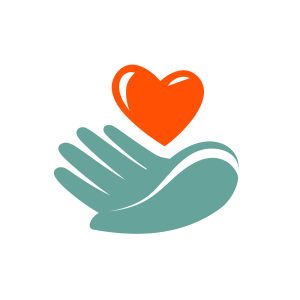




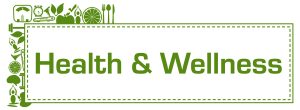

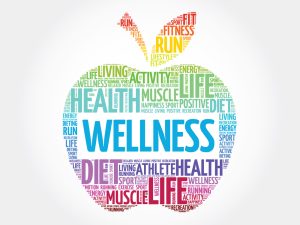
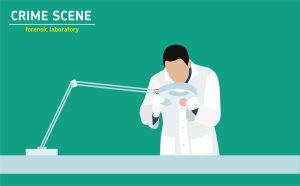

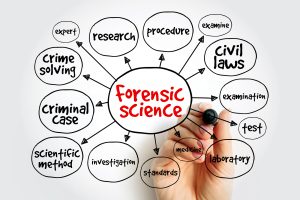



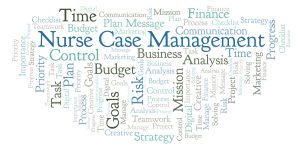
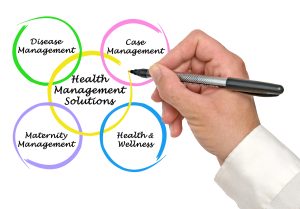

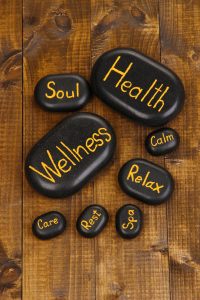
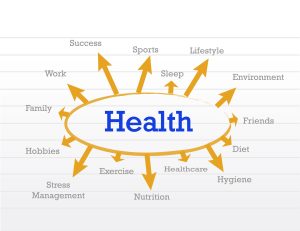



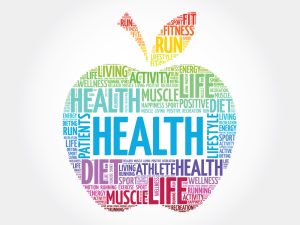
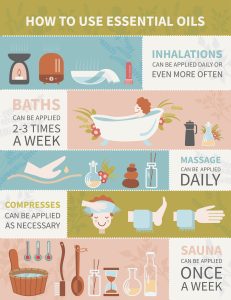
 When an individual faces a perceived threat, the hypothalamus, a small region at the base of the brain, sets off an alarm system in the body . This activation initiates the stress response, which involves the sympathetic-adreno-medullary (SAM) axis and the hypothalamic-pituitary-adrenal (HPA) axis.
When an individual faces a perceived threat, the hypothalamus, a small region at the base of the brain, sets off an alarm system in the body . This activation initiates the stress response, which involves the sympathetic-adreno-medullary (SAM) axis and the hypothalamic-pituitary-adrenal (HPA) axis.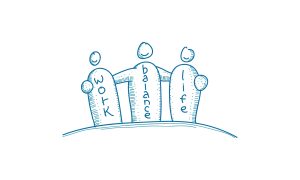
 To conduct a stress audit effectively, organizations can follow these steps:
To conduct a stress audit effectively, organizations can follow these steps: